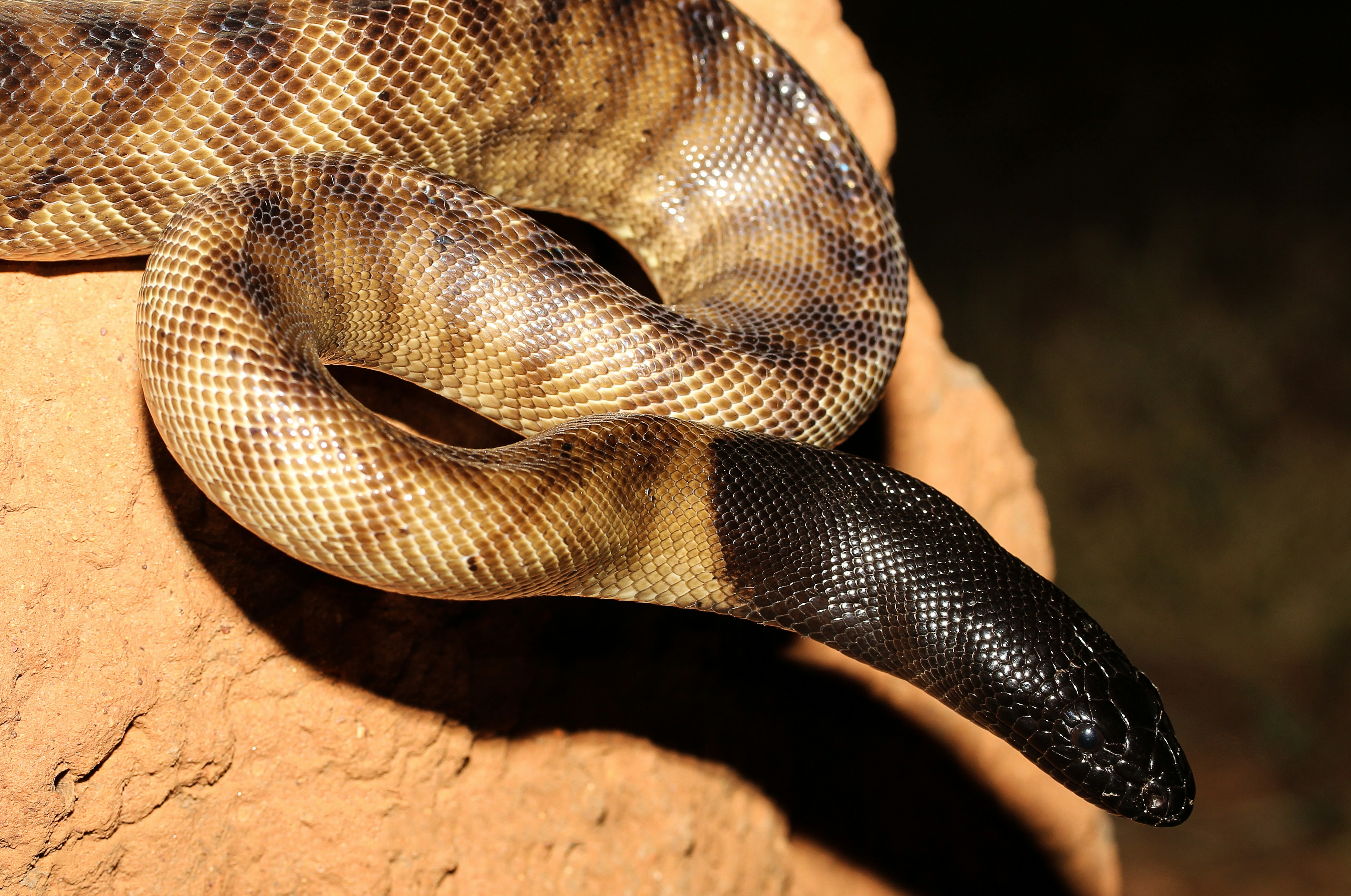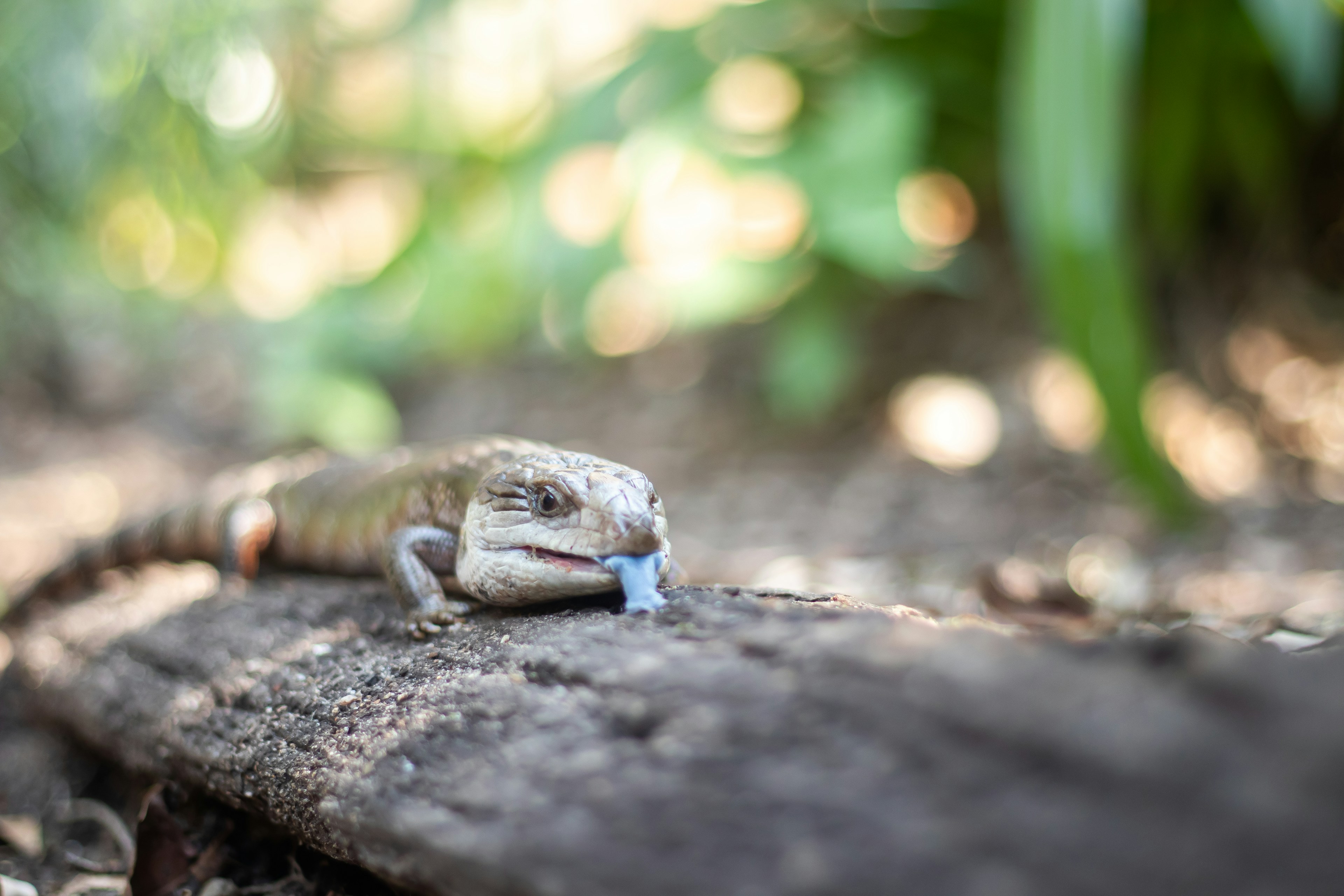 Corroboree & Australian Wildlife
Corroboree & Australian WildlifeBlack-headed python
Aspidites melanocephalus
Animal group: Reptile
Habitat: Arid
Conservation status: Least concern
With its sleek black head, this non-venomous python is a master of Australia’s rocky outcrops and woodlands.























